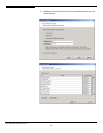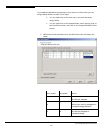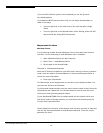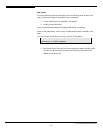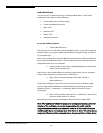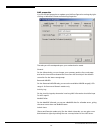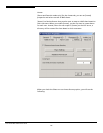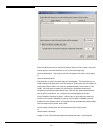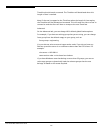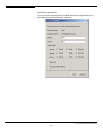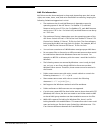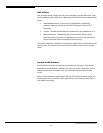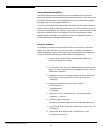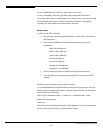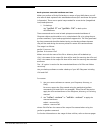
NAS file information
NAS clients use the shares assigned to them and, depending upon their access
rights, can create, share, read, and write files/folders as necessary, keeping the
following limitations/suggestions in mind:
• The maximum size of each NAS Resource is dependent upon the
operating system of the ASC Server. For RedHat v7.3, each NAS
Resource can be up to 2 TB in size. For RedHat v7.2, each NAS Resource
can be up to 1 TB in size. For Solaris UFS, each NAS Resource can be up
to 1 TB in size.
• The maximum file size is dependent upon the operating system of the
ASC Server. Solaris UFS has a 1 TB file size limit. RedHat v7.3 has a 2 TB
file size limit. RedHat v7.2 has a 1 TB file size limit. The client software
being used by the NAS user may limit this further. For example, NFS v2
has a <2 GB file size limit and CIFS has a 1 TB file size limit.
• You can have a maximum of 100 Windows users/groups per NAS share.
• Do not create files or directories on NFS mounted resources that would
be invalid when shared with Windows clients and vice versa. For
example, an NFS file or directory with the name * would be invalid for
Windows.
• The following names are reserved by Windows:
com1
-
com9
,
lpt1-lpt9
,
con
,
nul
,
prn
, or
aux
. Even though NFS/Unix clients can use them,
Windows clients cannot. Therefore, these names cannot be entered in
the Console.
• Folder names cannot start with a dot, contain a blank or contain the
following characters \ / : * ? ” < > | # %
• Share names cannot start with a dot or contain the following
characters \ / : * ? ” < > | # % [ ] = + ; ,
• NAS supports the Windows
read
and
write
files attributes.
• Folder attributes on NAS resources are not supported.
• If a Unix user creates NFS files that he/she want to share them with CIFS
(Windows) ASC clients, the Unix user needs to set his/her umask to 002
so that all NAS group members can have read/write access to the files.
• While ASC supports file locking for Windows files, there is no file
locking between Unix and Windows. This means that a Unix user could
open and write to a file that is open (locked) by a Windows user. This
is an inherent difference between Unix and Windows.
Acer Altos® NAS 700 Solution Guide
152



